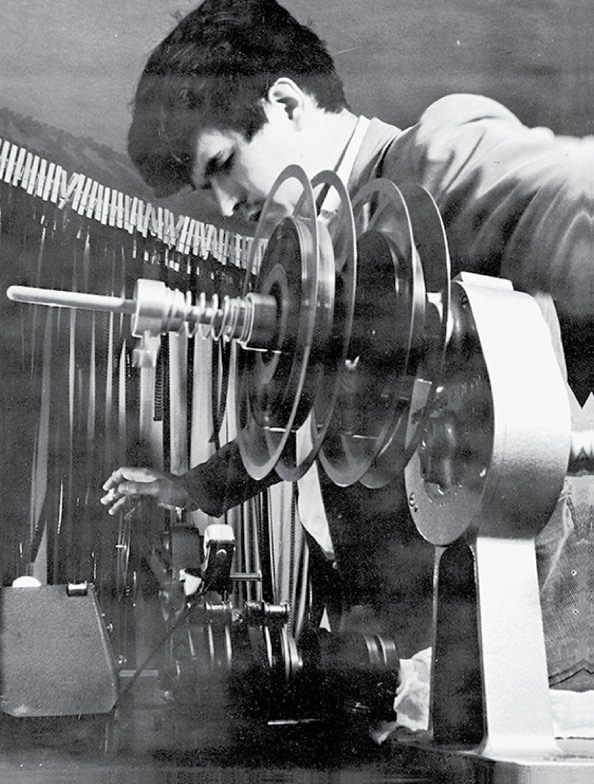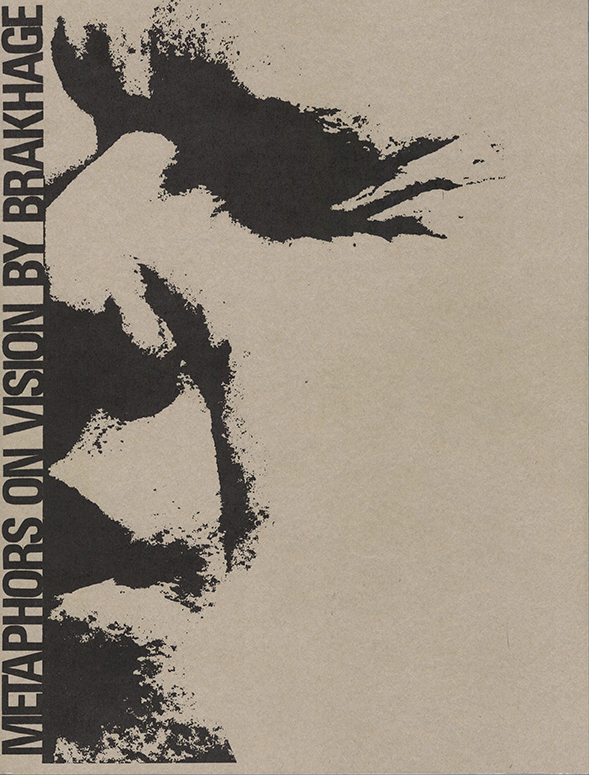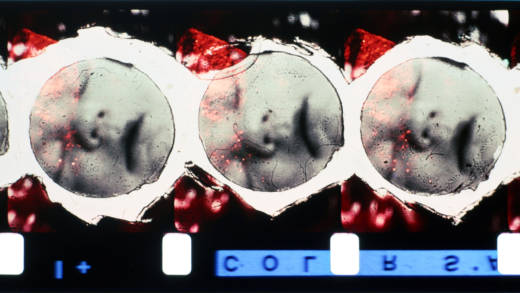A self-styled prodigy, Stan Brakhage left his mark on American avant-garde cinema not only through his films, of which there are hundreds, but also as a vocal proponent for an ideal of filmmaking as being at once sacramental and self-sufficient. Of this less tangible legacy, Metaphors on Vision is key. First published in 1963, and recently reprinted in a thoughtfully enhanced edition by Anthology Film Archives and Light Industry, Metaphors on Vision is a wild book both in terms of what it says and how it says it. Arguing for a reformation of cinema based upon the redemption of the senses, Brakhage starts out promising the world:
Imagine an eye unruled by man-made laws of perspective, an eye unprejudiced by compositional logic, an eye which does not respond to the name of everything but which must know each object encountered in life through an adventure of perception. How many colors are there in a field of grass to the crawling baby unaware of “Green?” How many rainbows can light create for the untutored eye?
Brakhage thought motion pictures uniquely capable of translating this “adventure of perception,” while allowing that the task required unlearning dramatic convention and formal technique. This, for Brakhage, is the filmmaker’s real work and hard work at that. Indeed, one of Metaphors on Vision’s lasting insights is that the very design of the camera can conspire against fresh seeing (all the more so in our era of digital auto-correction).

Brakhage wasn’t the first American avant-garde filmmaker — he wrote lovingly of some of his predecessors in Film at Wit’s End — but his preoccupation with perception itself was something new in the American cinema of the late 1950s and early 1960s. Here the facsimile treatment of Metaphors on Vision becomes important, as the eccentric book design, conceived by Fluxus founder George Maciunas, conveys not only an inspired mind in full windup but also the allure of an underground transmission. As P. Adams Sitney, who edited the book as a young man and compiled the contextualizing footnotes as professor emeritus, describes it: “The first edition of Metaphors on Vision was a beautiful and strange object. A corrugated-cardboard cover without a single word on its face, back, or spine… The text itself, densely printed on thick, absorbent (‘towel’) paper, ran 9 chapters in unbroken succession through 64 unnumbered pages. No index.”
Alas, too many of those 64 buckle under Brakhage’s torrential prose. Laboring through long paragraphs larded with Poundian punning and strenuous exaltation, I kept thinking back to a comparatively unencumbered text by Brakhage’s first wife, Jane Wodening, introducing her recent book Brakhage’s Childhood (a kind of reverse shot to his films of the period in that here she’s framing his voice). “Stan was usually a pleasure to converse with, to think with, although sometimes he’d talk in circles out of nerves, just talking,” she recalls. “He wanted respect, always, so sometimes there were days when I did nothing from dawn to dusk but listen to Stan talking.”

Wodening’s point of view is all the more salient given that Brakhage’s idealization of their marriage is the spark that lights Metaphors on Vision. The book’s prefatory interview with Sitney begins midstream with Brakhage positing his marriage as a locus of creativity, and the book’s copyright statement reads in part: “‘By Brakhage’ should be understood to mean ‘by way of Stan and Jane Brakhage,’ as it does in all my films since marriage… all the discoveries which used to pass only thru the instrument of myself are coming to pass thru the sensibilities of those I love” — which can be read, skeptically, as domination masquerading as receptivity. To be sure, Brakhage saw Jane as more than a speechless muse and throughout the text cites her reactions and insights as a source of genuine wisdom, but ideals so adamantly maintained have a way of laying siege to reality.



